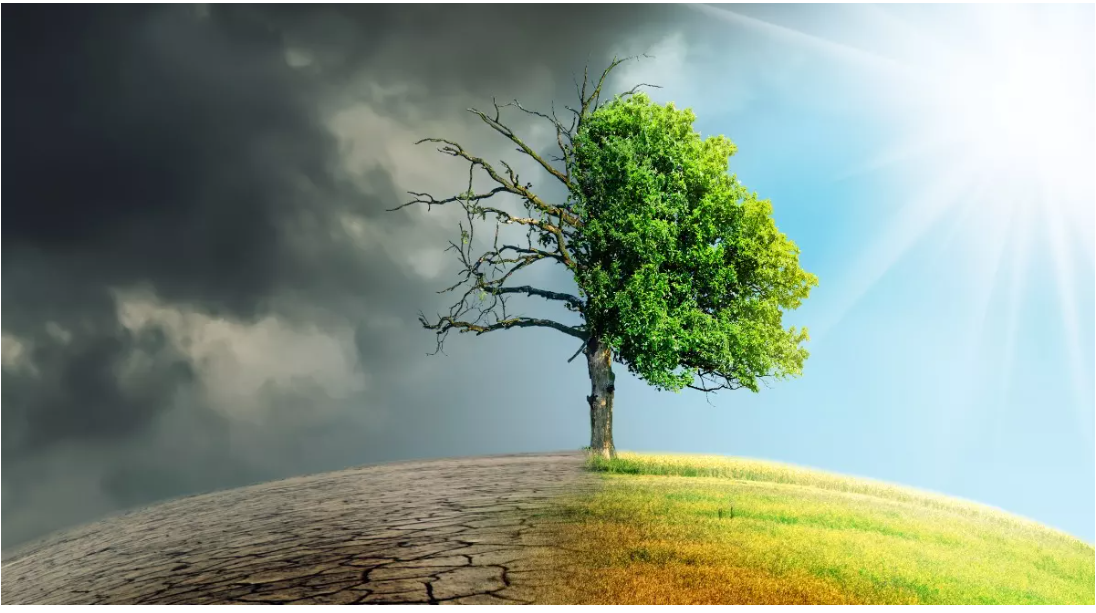"Every day, there's more bad news about the environment—wildfires, floods, extinctions. It's too much to process, and I don't know where to start."
Climate anxiety—a term that has gained significant traction—refers to the emotional distress many of us feel when faced with the looming threat of climate change (Sustainability Yale). The fear, helplessness, and guilt over the impacts of climate change are becoming increasingly common as we witness catastrophic wildfires, rising sea levels, and extreme weather events. Yet, understanding and addressing these emotions can pave the way for positive action.
Climate Anxiety in Toronto: Facing the Facts
In the past year, Toronto has grappled with significant challenges due to climate change, including extreme weather events, rising temperatures, and increased flooding. These environmental shifts contribute to the psychological stress that many Torontonians experience.
Key Statistics:
- Growing Concerns: A 2022 survey done by the University of Toronto found that 78% of residents are concerned about the impacts of climate change in Toronto and 82% of residents are concerned about the impacts of climate on the rest of the world.
- Emotional Impact: In an article written by the Canadian Climate Institute, 3 out of 4 Canadians feel that climate change impacts their mental health with anxiety in dealing with climate change. The anxiety is driven by concerns of personal safety, economic stability, and environmental degradation.
- Youth on the Frontlines: A study published in the Toronto Star by Lakehead University in 2023 found that 37% of youth feel that climate change has had a negative impact on their daily functioning and 56% reported feeling afraid, sad, anxious, and powerless. This demographic strongly believe that urgent action is needed, as they will inherit the long-term consequences of current environmental policies.
For many, climate anxiety can lead to a sense of isolation, especially if those concerns are not shared by others. It’s important to recognize that these feelings are common, and community support can be a powerful way to feel understood and find solidarity.
Research shows that how we talk about climate change matters. It’s normal to be worried about climate change. But it’s also normal to care about climate change action - most people do. There are plenty of people taking action around the globe, and we’re not in it alone (Yale Climate Communication).
The Importance of Venting
Venting can be a valuable tool for processing emotions. Sharing experiences with others who understand and empathize with similar concerns can provide relief and foster a sense of community.
Finding Your Outlet:
- Community Dialogues: Engage in local discussions and workshops that focus on climate issues.
Examples of Community Dialogues Include:
- Artistic Expression: Expressing climate-related emotions through art, music, or writing can be a powerful and creative way to cope. This not only serves as a form of therapy but can also inspire others. Local artists in Toronto have created installations to highlight the impacts of climate change, using their work to emphasize the importance of addressing these issues.

- Physical Activity: Participate in activities that connect you with nature, such as hiking, cycling, or community gardening. These activities not only help in promoting mental well-being but also reinforcing the importance of preserving natural green spaces. More examples can be found from the City of Toronto’s, “Nature and Eco Programs” page on what can be done to be “one with nature.”
Turning Anxiety into Action
One powerful way to tackle climate anxiety is by turning that concern into action. Whether it's reducing your carbon footprint, advocating for policy changes, or getting involved in local community projects, dedicating a bit of time to doing your part can help.
Not only does this help climate action, but it also empowers you to be part of the solution. As individuals, we're not responsible for saving the planet. But we can start by scheduling out a couple hours a month to start to do our part, imperfectly.
Steps You Can Take:
- Stay Informed: Educate yourself and others about climate change impacts specifically to Toronto.
- Reduce Your Footprint: Make conscious choices to reduce your carbon footprint, such as using public transportation, supporting local farmers, and minimizing waste. Pick one thing to start with and go from there.
- Get Involved: Joining local environmental groups or campaigns that focus on policy change and sustainable practices. Examples include:
But what about the future?
Climate anxiety can feel overwhelming, especially with all the doom-filled headlines out there. Just think - what's the tone of most of the climate stories that you read, and how does that make you feel?
But what if we started to flip the narrative? Instead of getting stuck in fear, we can start to reimagine what's possible for the future.
At Climate Resilient Communities, we're interested in exploring how we can get climate action as right as possible, using narratives built around data to point towards the possibilities. Real progress is happening, and the more we highlight those stories, the more momentum they gain—like cleaner air, increasing access to affordable clean energy, and decreasing deforestation rates.
It’s not about ignoring the hard truths and challenges, but shifting the focus to what’s working and what we can build on. By grounding our climate conversations in data, we can create stories of action and innovation, showing how resilient communities are not just possible—they’re already taking shape. When we start to see the solutions, we can move forward with purpose and a common vision of what that future can look like, and how we can move in that direction together.





